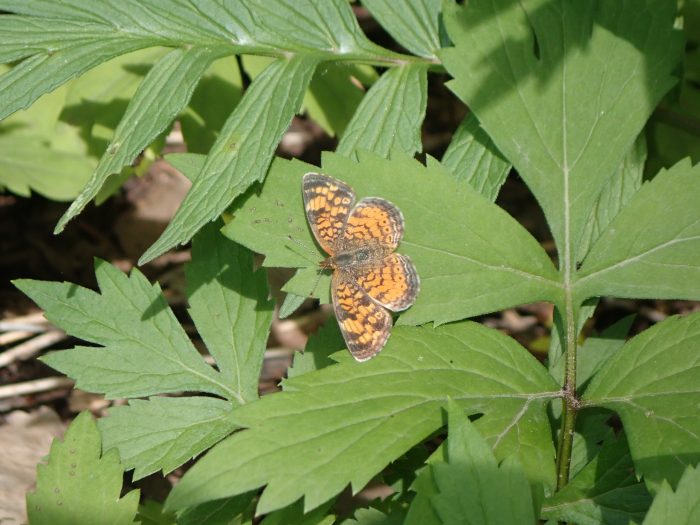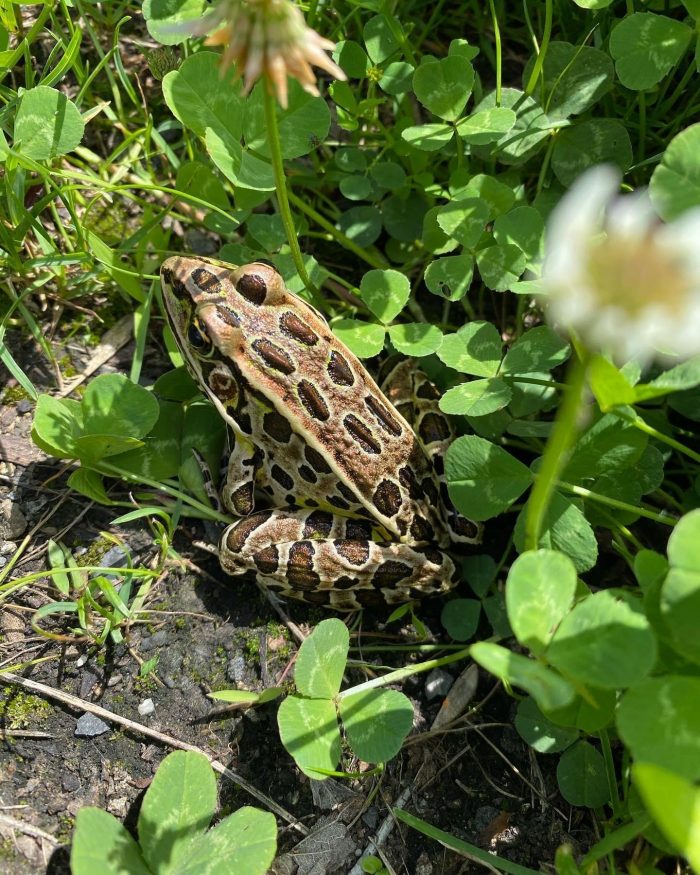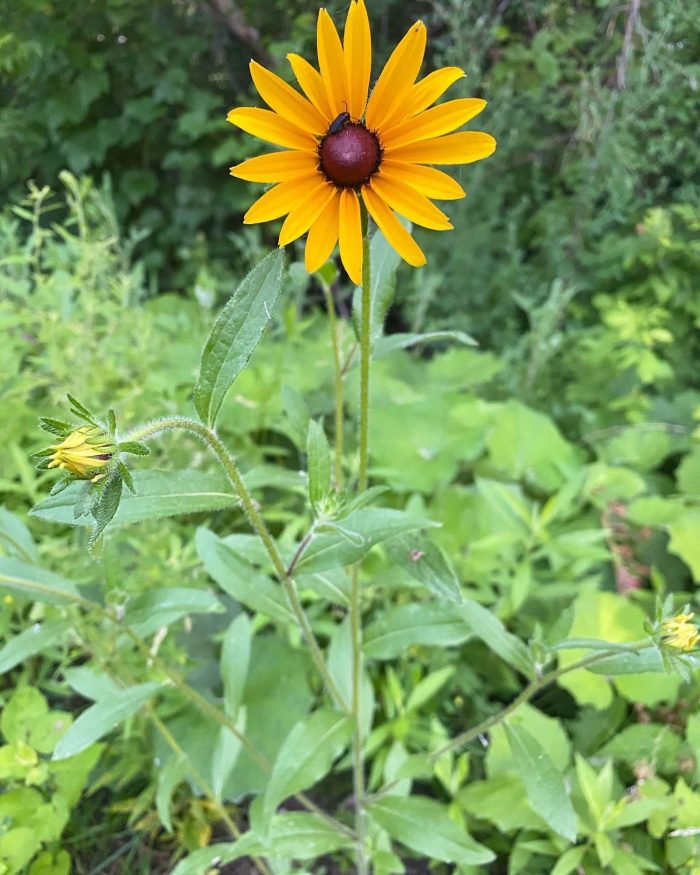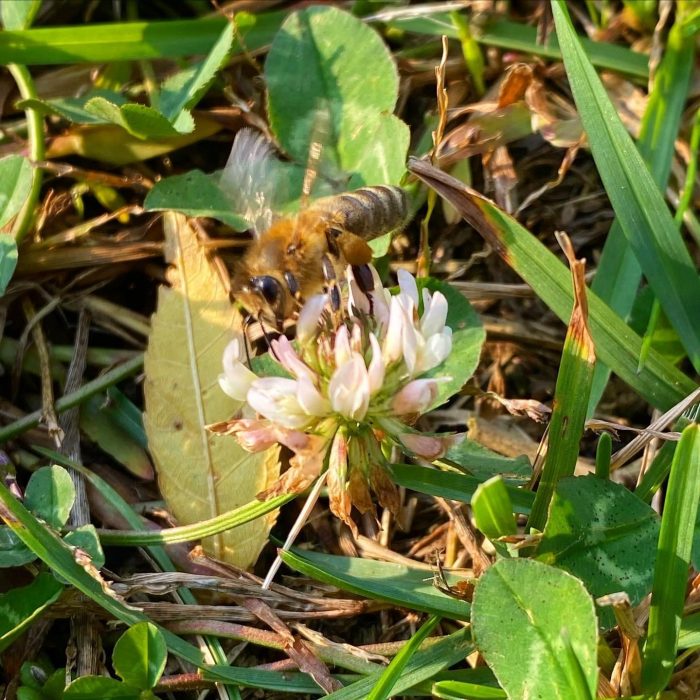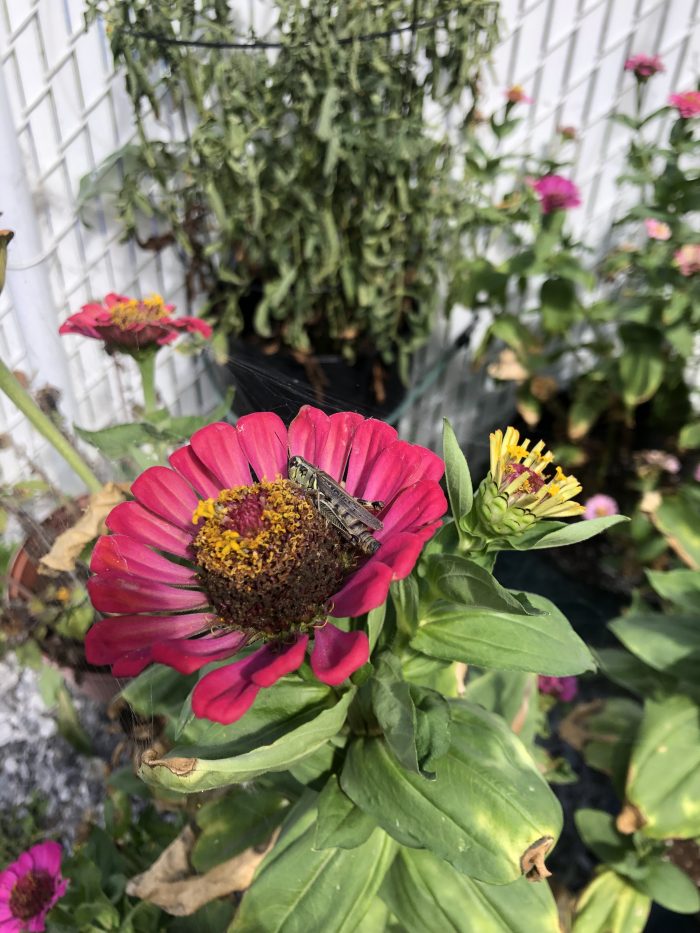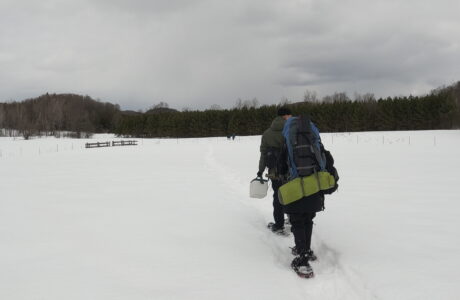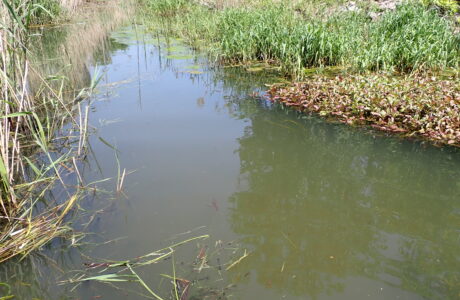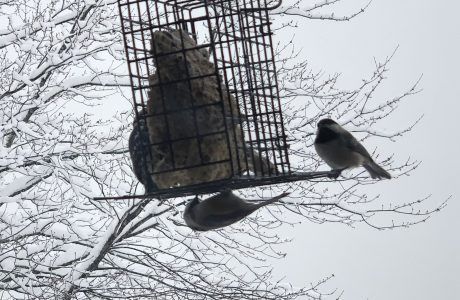No Mow May / Nó:nen Onerahtohkó:wa Nikahá:wi, Tóhsa’ Sewathéntia’k!
2024 No Mow May Registration Form
Warmer weather signals a return to our gardens and yardwork, but each spring we also welcome back our bees, butterflies, and other wildlife. Pollinators have returned and are searching for food and shelter to make it through the early stages in their life cycle. Dandelions, clovers, and other common yard plants are the first food source for pollinators.
The Kahnawà:ke Environment Protection Office (KEPO) is inviting you help support pollinators by letting your lawn grow for the entire month of May without mowing. Letting native plants thrive for just one month can result in three times higher bee species richness and five times more bees than regularly mowed lawns (Del Toro).
Pollinators are a crucial part of our ecosystems. Birds, bats, bees, butterflies, and beetles are needed for the reproduction of 90% of flowering plants and 35% of the global food supply. Bees are the world’s primary pollinators who contribute to plant diversity and crop pollination. Unfortunately, pollinator populations have seen a dramatic global decline. Nearly one in four native bee species is at an increased risk of extinction. The main threats to these populations include habitat destruction, pesticide use, and climate change (Kopec).
This spring, consider putting the lawnmower aside for a little bit longer and participating in No Mow May to help support pollinators. KEPO will be distributing lawn signs to registered participants. Participants who complete the month-long challenge will be entered to win one of three garden-themed prizes valued at $150! We ask that participants submit weekly progress photos throughout the month.
Pictures can be submitted via Facebook Messenger or to environmentprotection@mck.ca.
Other ways to help pollinators:
- Create a permanent pollinator garden with native flowers.
- Avoid pesticides and weed-killers.
- Mow less often and raise your mowing height to four inches to let flowering plants grow.
- Educate others on the importance of pollinator protection.
Sources:
- Del Toro, Israel, and Relena R Ribbons. “No Mow May lawns have higher pollinator richness and abundances: An engaged community provides floral resources for pollinators.” PeerJ vol. 8 e10021. 22 Sep. 2020, doi:10.7717/peerj.10021
- Kopec, Kelsey, and Lori Ann Burd. Review of Pollinators in Peril: A systematic status review of North American and Hawaiian native bees, Center for Biological Diversity, Feb. 2017, https://www.biologicaldiversity.org/campaigns/native_pollinators/pdfs/Pollinators_in_Peril.pdf Accessed 2022.
